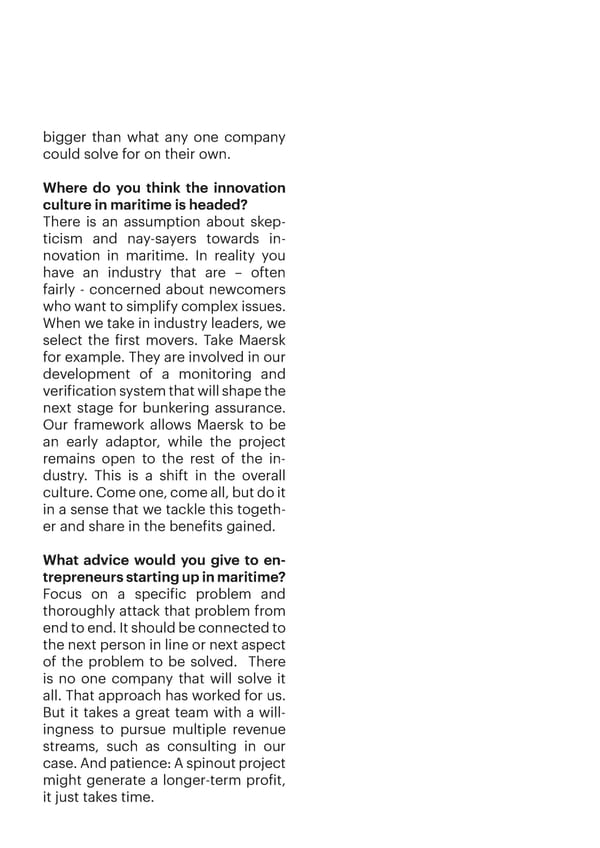bigger than what any one company could solve for on their own. Where do you think the innovation culture in maritime is headed? There is an assumption about skep- ticism and nay-sayers towards in- novation in maritime. In reality you have an industry that are – often fairly - concerned about newcomers who want to simplify complex issues. When we take in industry leaders, we select the first movers. Take Maersk for example. They are involved in our development of a monitoring and verification system that will shape the next stage for bunkering assurance. Our framework allows Maersk to be an early adaptor, while the project remains open to the rest of the in- dustry. This is a shift in the overall culture. Come one, come all, but do it in a sense that we tackle this togeth- er and share in the benefits gained. What advice would you give to en- trepreneurs starting up in maritime? Focus on a specific problem and thoroughly attack that problem from end to end. It should be connected to the next person in line or next aspect of the problem to be solved. There is no one company that will solve it all. That approach has worked for us. But it takes a great team with a will- ingness to pursue multiple revenue streams, such as consulting in our case. And patience: A spinout project might generate a longer-term profit, it just takes time.
 Changemakers Page 16 Page 18
Changemakers Page 16 Page 18